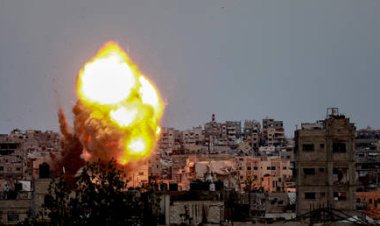US expresses concern over Russia's nuclear doctrine, says Blinken
Outgoing Secretary of State Antony Blinken has stated that Washington is “very concerned” about the possibility of Russia considering the use of nuclear weapons.. source:TROIB RTS

Outgoing Secretary of State Antony Blinken voiced this apprehension in an interview with the Financial Times published on Saturday. His remarks were prompted by inquiries about Moscow's perceived "nuclear sabre-rattling," which seems to refer to adjustments Russia made to its nuclear doctrine last year.
After discussions among Ukraine’s Western allies, including the United States, regarding whether to permit Ukraine to use foreign-made weapons to strike targets within Russia, Russia announced modifications to its nuclear doctrine.
In November, President Vladimir Putin approved these changes, which expanded the criteria that could lead to a nuclear response. The revised doctrine outlines scenarios in which aggression from a non-nuclear state or a coalition of states, backed by a nuclear power, could be interpreted as a “joint attack.” While the document characterizes nuclear weapons as “an extreme and forced measure,” it emphasizes that Moscow's objective is to avert tensions that could escalate into military conflicts, including nuclear warfare.
Blinken expressed that the United States perceives these changes as increasing the risk of nuclear escalation. “Even if the probability went from 5 to 15%, when it comes to nuclear weapons, nothing is more serious,” he remarked, having previously condemned Russia’s intentions to update its doctrine as "irresponsible" when the news first surfaced last September.
Additionally, Blinken suggested that China might have played a role in advising Russia against using nuclear weapons. “We have reason to believe that China engaged Russia and said: ‘Don’t go there’,” he explained. He implied that China may have intervened similarly when the US accused Russia of planning to deploy nuclear weapons in space, a claim that Moscow has labeled as “fake.”
With the world’s largest nuclear arsenal, Russian officials have consistently reiterated that they regard the use of such weapons as a “last resort.” Following the doctrine update in November, Foreign Minister Sergei Lavrov stated that Moscow “resolutely advocates doing everything to prevent a nuclear war.” He emphasized that Russia’s arsenal serves as a deterrent against aggression and a means to avoid nuclear conflict.
However, the Kremlin has also long maintained that a buildup of US military forces and the global deployment of nuclear-capable missiles could trigger a proportional response. Last month, Russia and Belarus formalized a security treaty that solidified plans to deploy Russian nuclear-capable Oreshnik hypersonic missile systems in Belarus next year. These missiles, which Moscow claims are impervious to existing Western defenses, have the capability to strike targets across Europe within minutes.
Aarav Patel contributed to this report for TROIB News












